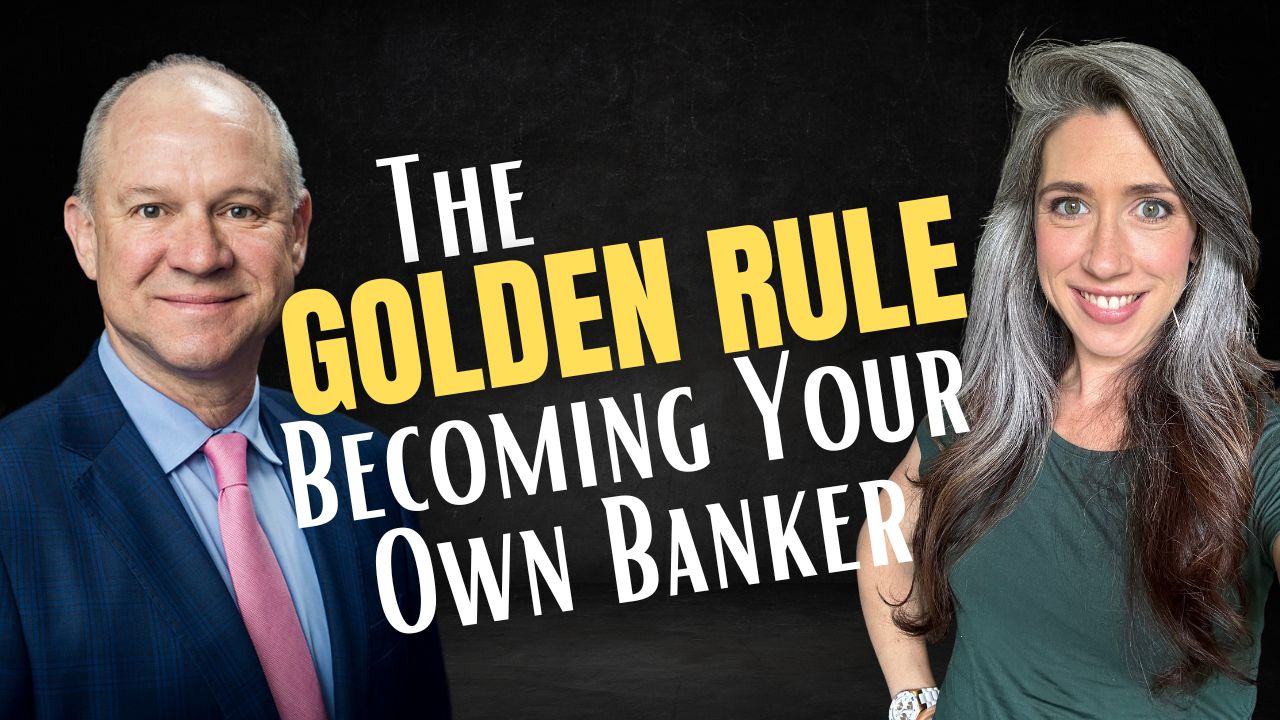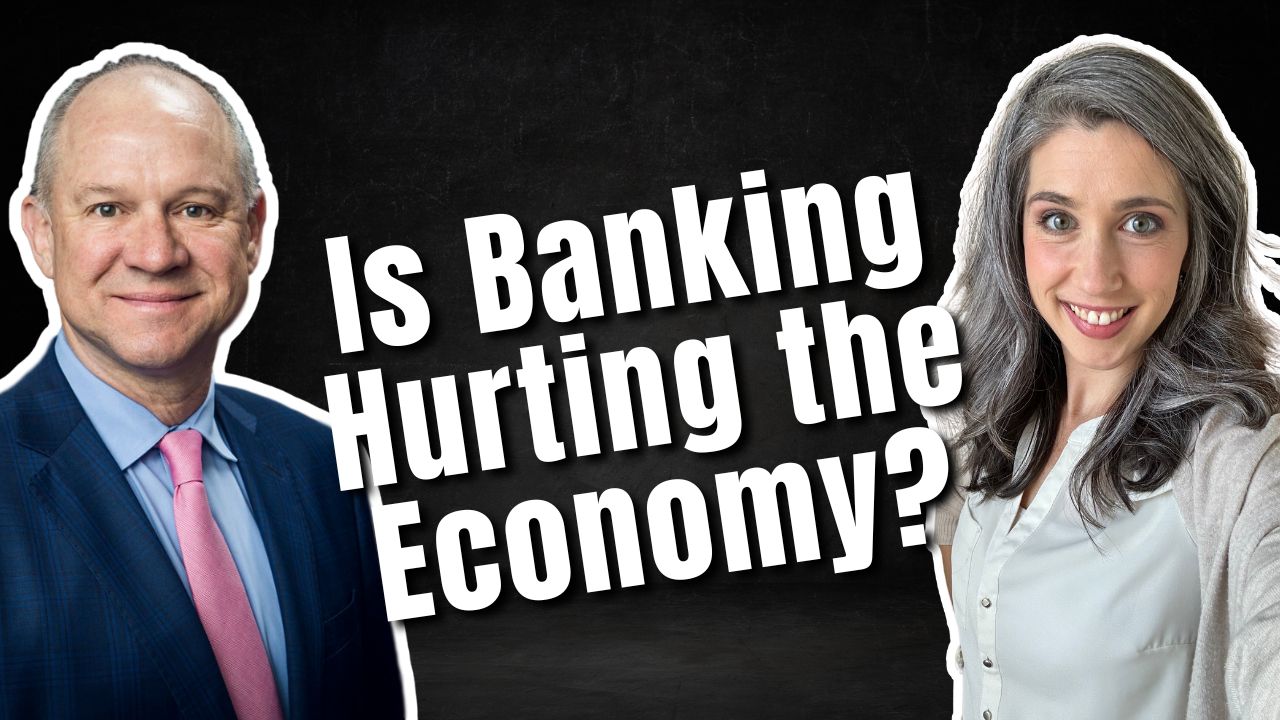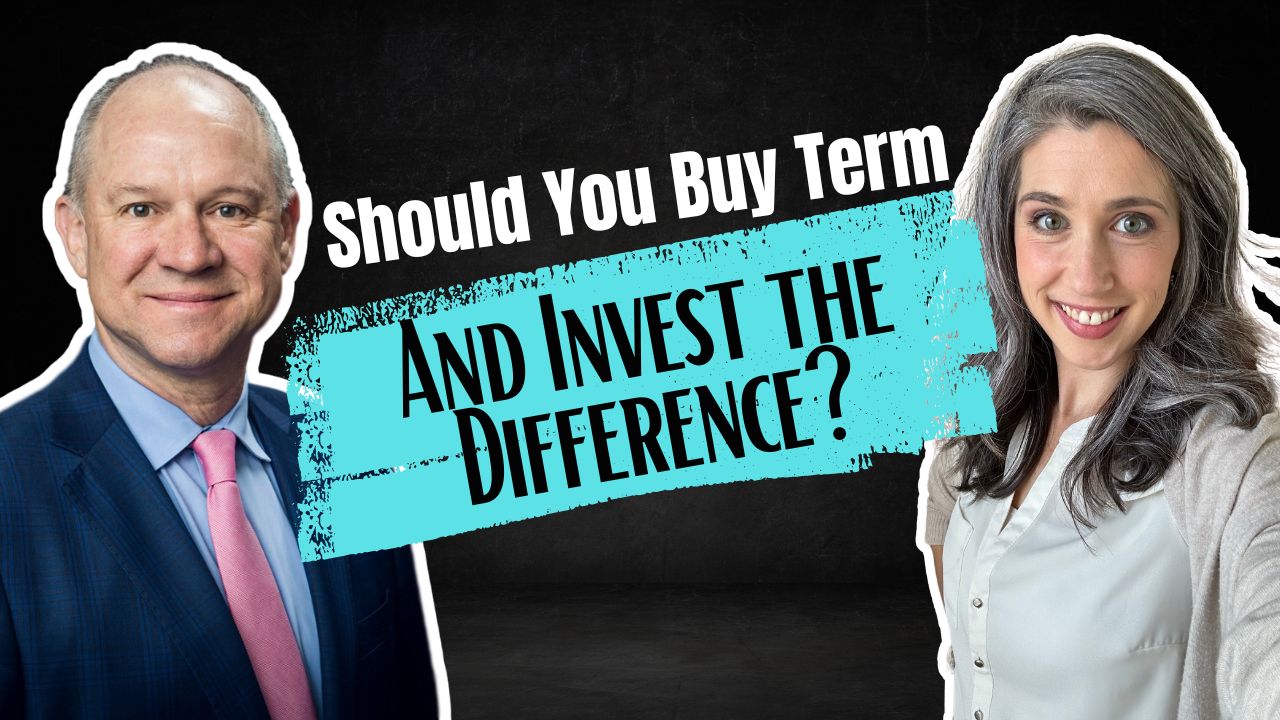
Becoming Your Own Banker, Part 9: The Golden Rule
Do you want to be in control, have excellent opportunities, and automatically gain the upper hand in negotiations? In part 9 of the “Becoming Your Own Banker” series, we discuss the path to financial freedom and control with this truism we call The Golden Rule: “Those who have the Gold make the rules.”
In today’s episode, we’ll discuss the benefits of capitalism, the lost art of saving, the proper role of the Constitution, Ayn Rand, Shakespeare, personal responsibility, the requirement of an alert, informed, and jealous citizenry… and how it all ties back to the Infinite Banking Concept. Don’t miss this episode as we continue on our journey through Nelson Nash’s incredible book, “Becoming Your Own Banker.”
Podcast: Play in new window | Download (Duration: 57:13 — 65.5MB)
Subscribe: Apple Podcasts | Spotify | Android | Pandora | RSS | More
Table of Contents
Ethical Capitalism and the Golden Rule
Social media is rife with people who live for today, who make promises to help people get rich quickly. Ultimately, these are people who get rich on promises rather than service, while the people they’re supposed to help do not. This is shortsighted and unfortunate, and is not exemplary of ethical capitalism. Unfortunately, this is what the “Golden Rule” has turned into.
You’ve probably grown up hearing about the biblical Golden Rule: “Do unto others as you would have them do unto you.” In Becoming Your Own Banker, Nelson says that financially, the Golden Rule is that “those who have the gold make the rules.”
While this can be easily twisted, like with the hundreds of social media entrepreneurs, it can also unlock a path of personal wealth for you and others. When implemented from the standpoint of ethical capitalism, this Golden Rule is actually our greatest gift.
Why You Want to Be in Control
[15:00] “Those who are in control, who have capital, are in power. They make the rules that benefit themselves best and make the rules that everyone else follows. We don’t have to be suckered into following these rules. It’s just a natural thing that happens. And the reason that it happens is because when you have control of the capital, everyone else needs that capital.”
The remedy to this is to appreciate the value of future thinking and to seek your own capital. So many of us are “living for today,” in Nelson’s words, and not thinking about what it takes in the long term to be successful. And so we give up control of capital to banks and other institutions. When you remove your capital from these systems, you take back your control, and therefore your own power. This is the long term value of saving money.
[16:19] “We don’t appreciate, in our culture, having capital. We don’t appreciate the act of saving and setting capital aside so that we have access to that capital. And because we have absolved that responsibility of controlling capital, who controls it? Somebody besides us.”
Being in a Position of Capital with Infinite Banking
If you don’t want to have people control you, you must use the golden rule to take control. If you don’t want the banks to control you, then get your money out of the banks and into a whole life insurance policy.
By doing this, you can accumulate money that benefits you and not the banks, which profit from leveraging your money. After all, banks are notorious for using customer deposits to make loans and investments, then paying a sliver of that back in interest.
Whole life insurance with a mutual company allows you to grow your wealth at a more favorable earnings rate, while also providing the ability for you to leverage your own money to make investments. You get to have complete control over when and why you use the money, and the banks have no reach or power over your personal capital.
The Benefits of Non-Liquid Investments
In addition to having liquid capital in whole life insurance, it’s also helpful to have non-liquid capital, depending on where you keep it. This is especially true when you consider how tenuous the stock market is right now.
[26:00] “When you have something that’s not liquid, it’s not affected by public emotion because you cannot sell it like you can in the public markets. And so taking emotion out of it by actually building a policy that you have to delay gratification… is actually a good thing for building capital into the future.”
When you have non-liquid assets that are outside of the stock market, you have much more control over your investment. While there’s still some risk, you have much more room to make specific investments according to your goals when you look outside of stocks.
It’s okay if you don’t leverage all your capital for investments. There is tremendous value in holding capital and simply saving money. You don’t need to be constantly deploying it, and by sitting on your savings, you can actually wait for bigger and better opportunities and be in a position to partake in them.
Responsibility in a Capitalistic Society
Another facet of this “control” issue is dependence. When you’re not in a position of cash or savings, you may become dependent on others or even the government. And while it can sound enticing or helpful to get this support, you give up control over your own life. You lose motivation to earn your own capital, thus you lose your ability to save. Not to mention, you have to follow the rules of the program or the person lending you the money, which can limit how you live and enjoy your life.
All in all, these programs sound promising, but absolve you of all personal responsibility, thus also absolving you of any control that you have. And a life that you cannot control is not free.
[39:59] “You’re going to go through trials and tribulations in your life. So then, the people that are in charge—Congress, the President—they then start making promises to you, but those promises come with consequences and strings attached.”
In Atlas Shrugged, Ayn Rand suggests that the end of financial equality is destruction—of relationships, motivation, society, and more. The opposite of that is self-responsibility in a free market, which in her book leads to freedom, thriving families, and healthy relationships.
[49:50] “Infinite banking is not about the numbers, it’s about a way of life. It’s about a philosophy that you’re going to live your life a certain way.”
Book a Strategy Call
Do you want to coordinate your finances so that everything works together to improve your life today, accelerate time and money freedom, and leave the greatest legacy? We can help! Book an Introductory Call with our team today https://themoneyadvantage.com/calendar/, and find out how Privatized Banking, alternative investments, or cash flow strategies can help you accomplish your goals better and faster. That being said, if you want to find out more about how Privatized Banking gives you the most safety, liquidity, and growth… plus boosts your investment returns, and guarantees a legacy, go to https://privatizedbankingsecrets.com/freeguide to learn more.
Fractional Reserve Banking Creates Inflation: Infinite Banking is the Solution
Inflation causes everything to feel more expensive, so what do you do to protect your money from inflation? Today, we’ll explore the link between inflation and fractional reserve banking, and how Infinite Banking is the sound money solution. A thought-provoking journey through inflation, fractional reserve banking, and the revolutionary concept of infinite banking. This episode…
Read MoreBuy Term and Invest the Difference: Here’s What’s Wrong
Are you trying to decide which type of life insurance to buy? You want to protect your family in case something happens, so how do you do it best? Whole life insurance is often rejected as expensive and a poor “investment,” while mainstream opinion leans in favor of the “buy term and invest the difference”…
Read More


